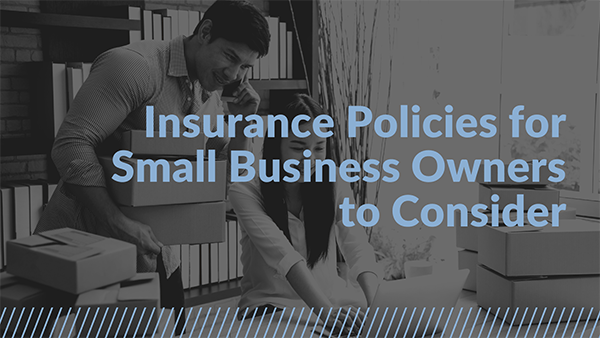Aytyapi Insights
Exploring the latest trends and updates in technology and lifestyle.
Buckle Up: Navigating the Wild World of Small Business Insurance
Buckle up and explore the wild world of small business insurance! Discover tips, tricks, and must-knows to protect your venture today!
Understanding the Basics: What Every Small Business Owner Needs to Know About Insurance
Understanding the basics of insurance is crucial for every small business owner. Insurance not only protects your assets but also ensures the longevity and sustainability of your business. There are various types of insurance policies that small businesses should consider, including general liability insurance, property insurance, and workers' compensation insurance. Each type of insurance serves a specific purpose: general liability covers claims related to injuries and accidents, property insurance protects your physical assets from damage, and workers' compensation provides benefits to employees who get injured on the job.
When considering insurance options, it's essential to evaluate your unique business needs. Start by conducting a risk assessment to identify potential hazards that could impact your operations. Additionally, small business owners should understand the importance of compliance with state and federal regulations regarding insurance coverage. Not only does the right insurance minimize financial risks, but it can also enhance your credibility with customers and clients. Remember, investing in insurance is not merely an expense; it's a vital step towards securing your business's future.

Top 5 Common Mistakes Small Businesses Make When Choosing Insurance
Choosing the right insurance can be a daunting task for small business owners. One of the common mistakes is failing to assess specific risks associated with their industry. Every business has unique needs, and not understanding these can lead to inadequate coverage. For instance, a construction company might require liability coverage that a retail store does not. It's vital to conduct a thorough risk assessment and consult with an insurance professional who can tailored advice to your business's unique circumstances.
Another frequent error is overlooking policy details, such as exclusions and limits. Many small business owners tend to focus solely on the premium costs, neglecting to read the fine print. This can result in unexpected costs in times of need if certain risks are not covered. To avoid this pitfall, it's crucial to take the time to review policy documents carefully and engage in discussions with your insurer about any elements that are unclear.
Is Your Small Business Adequately Insured? Key Questions to Ask
Ensuring that your small business is adequately insured is crucial for safeguarding your assets and financial stability. Start by evaluating the type of coverage you currently have. Key questions to ask include:
- What types of risks am I exposed to in my industry?
- Do I have general liability insurance, and does it cover all potential claims?
- Am I covered for property damage, loss of income, and employee injuries?
Next, consider the specific needs of your business. Key questions to ask here involve:
- Are there any legal requirements for insurance in my state or industry?
- How do my personal assets intertwine with my business risks?
- Can I afford the premiums for suggested coverage, and will it provide adequate protection?